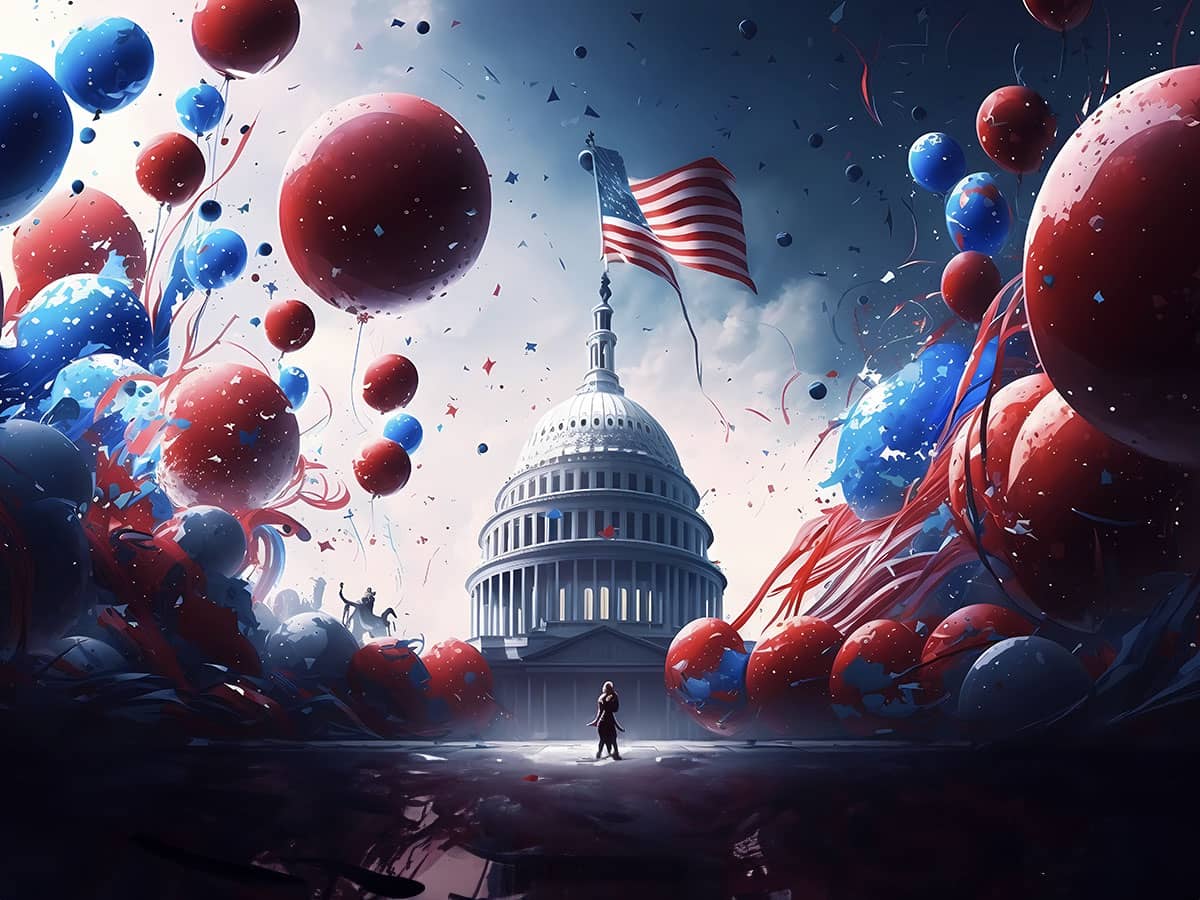Some legal scholars say the ruling, which takes issues with the phrase "one nation under God," will likely either be overturned by the U.S. Supreme Court or reversed by the full 9th U.S. Circuit Court of Appeals.
"I would bet an awful lot on that," said Harvard University scholar Laurence Tribe.
Wednesday's 2-1 ruling was in response to an atheist's bid to keep his second-grade daughter from being exposed to religion in school.
Circuit Judge Alfred T. Goodwin said leading schoolchildren in a pledge that says the United States is "one nation under God" is as objectionable as making them say "we are a nation 'under Jesus,' a nation 'under Vishnu,' a nation 'under Zeus,' or a nation 'under no god,' because none of these professions can be neutral with respect to religion."
The decision was met with widespread criticism.
President Bush found the ruling "ridiculous." Senate Majority Leader Tom Daschle, D-S.D., called it "just nuts." Sen. Christopher Bond, R-Mo., said it was "political correctness run amok."
"The Supreme Court itself begins each of its sessions with the phrase 'God save the United States and this honorable court,'" said White House spokesman Ari Fleischer. "The Declaration of Independence refers to God or to the creator four different times. Congress begins each session of the Congress each day with a prayer, and of course our currency says, "In God We Trust."
If allowed to stand, the ruling from the nation's most-overturned court would bar schoolchildren from reciting the pledge - at least in the nine Western states the 9th Circuit covers. The decision does not take effect for several months.
The court took up the case after a federal judge dismissed the lawsuit brought by Michael Newdow, a Sacramento physician with a law degree who represented himself.
"This is my parental right to say I don't want the government telling my child what to believe in," Newdow said.
He said he had received a barrage of threatening phone calls because of the panel's ruling.
The U.S. Supreme Court has never squarely addressed the issue, Tribe said. The court has said schools can require teachers to lead the pledge but ruled students cannot be punished for refusing to recite it.
The panel said President Eisenhower alluded to the religious aspects of the pledge on June 14, 1954, when he signed the insertion of the phrase "under God" into law.
"Millions of our school children will daily proclaim in every city and town, every village and rural schoolhouse, the dedication of our nation and our people to the Almighty," Eisenhower said.
Dissenting Judge Ferdinand F. Fernandez, appointed by the first President Bush, chided the decision by Goodwin, a Nixon appointee, and Judge Stephen Reinhardt, appointed by President Carter.
Under "Newdow's theory of our Constitution, accepted by my colleagues today, we will soon find ourselves prohibited from using our album of patriotic songs in many public settings," Fernandez wrote.
"'God Bless America' and 'America the Beautiful' will be gone for sure, and while use of the first and second stanzas of 'The Star Spangled Banner' will still be permissible, we will be precluded from straying into the third," he added.
Fernandez said the same logic would apply to using "In God We Trust" on the nation's currency.
Bond, the Missouri senator, had similar complaints.
"Our Founding Fathers must be spinning in their graves. This is the worst kind of political correctness run amok," Bond said. "What's next? Will the courts now strip 'so help me God' from the pledge taken by new presidents?"
Congress approved the change to the pledge at the height of the Cold War after a campaign by the Knights of Columbus, a Roman Catholic men's service organization. Americans deluged Congress with mail supporting the change, and religious leaders said the United States' pledge should be different from that of communist countries.
The court noted that the U.S. Supreme Court has said students cannot hold religious invocations at graduations and cannot be compelled to recite the pledge.
But the appeals panel went a step further, ruling the Constitution protects students who don't believe in a monotheistic deity from even having to make an "unacceptable choice between participating and protesting."
The government had argued that the religious content of "one nation under God" is minimal, but the appellate court said the phrase can reasonably be seen by atheists or believers in certain non-Judeo-Christian religions as an attempt "to enforce a 'religious orthodoxy' of monotheism."
In other school-related religious cases, the high court has said that schools cannot post the Ten Commandments in public school classrooms. In March, a federal appeals court ruled that Ohio's motto, "With God, all things are possible," is constitutional and is not an endorsement of Christianity even though it quotes the words of Jesus.
The Ninth Circuit covers Alaska, Arizona, California, Hawaii, Idaho, Montana, Nevada, Oregon and Washington.
The appeals court gives parties time to appeal, and the government can also appeal to the Supreme Court.

